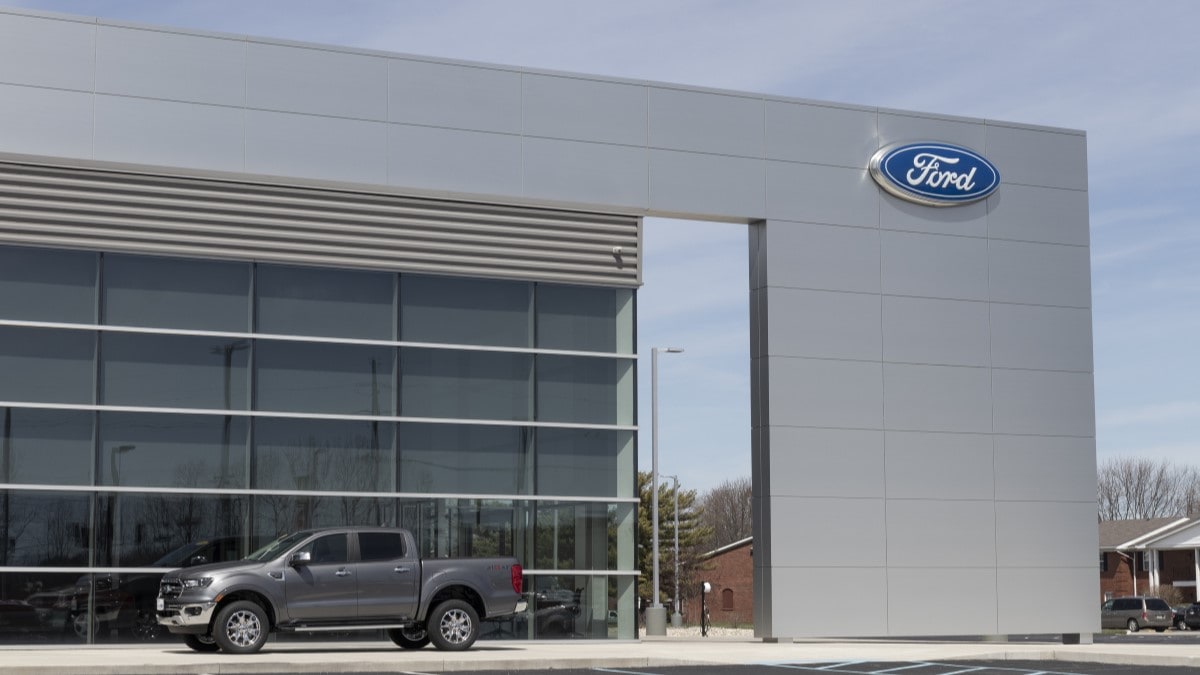Ford has informed its dealers to expect tariff-related price increases as early as May, according to a new report.
Industry publication Automotive News has seen a memo from “a top executive” telling dealers price increases could come “next month if President Donald Trump doesn’t ease tariffs on automotive imports.”
Bloomberg later confirmed the report.
“We will not increase the MSRP for any vehicle currently in inventory with our Ford and Lincoln dealers, and our employee pricing offer will remain in the market through June 2, 2025, as advertised,” wrote Andrew Frick, president of Ford Blue and Model e.
“However, in the absence of material changes to the tariff policy as articulated to date, we anticipate the need to make vehicle pricing adjustments in the future, which is expected to happen with May production.”
Dealers Buy Cars Before You Do
The auto industry sets prices through a complicated structure. Dealers generally don’t own the cars on their lots. They’re making monthly payments on them, just as you will likely be if you buy one. The bank offering their loan is often a division of the automaker.
Automakers charge dealers a fee based on the cost of building the car, often referred to as the “invoice price.” Tariffs will raise invoice prices.
Dealers must then negotiate a final sale price with each buyer, accounting for the cost of paying off the loan that paid the invoice and allowing them enough profit to stay in business.
Tariffs Impact the Price the Dealer Pays
A tariff is a tax on imports, paid when a product is imported into the country. Trump has enacted two separate sets of levies affecting car prices.
One, already active, charges 25% of the value of any finished car entering the country from outside the U.S., Canada, or Mexico.
Related: Where Every Car Sold in America is Built
Another set of tariffs, to begin in May, will affect car parts brought in from outside the country. Every car Ford builds, including those built in the U.S., Canada, and Mexico, uses some foreign parts. That tariff will raise the cost of every new Ford.
Cars Already on Dealer Lots Aren’t (Directly) Affected
Every Ford dealer already has a stockpile of vehicles on the lot, which they purchased at pre-tariff prices. Ford entered April with a healthier inventory than most other automakers.
Dealers don’t need to raise prices on those to cover their costs. But they do need to prepare their finances for the day when they have to pay more to replace each car they sell. So they may raise prices ahead of the day they run out of current inventory in order to have the cash to replace it.
For now, Ford is offering an employee pricing discount on most new cars, excluding some specialty performance models like the Mustang Dark Horse or F-150 Raptor.








